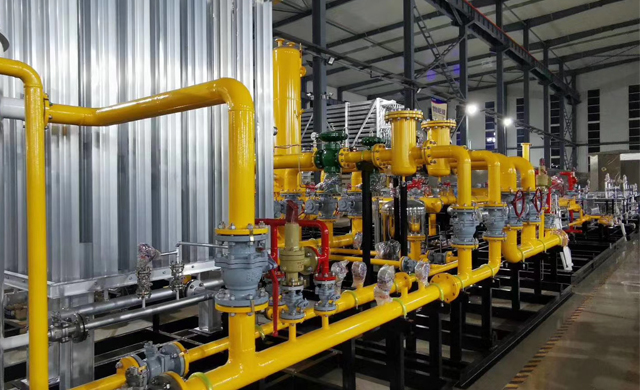
Nov . 04, 2024 11:07
Back to list
High-Performance Voltage Regulator for Enhanced Precision and Stability in Electronic Circuits
Precision Voltage Regulators Ensuring Stability in Electrical Systems
In today's rapidly advancing technological landscape, precision voltage regulators play a crucial role in ensuring the stability and reliability of electronic devices and systems. These components are essential in a variety of applications, ranging from consumer electronics to telecommunications and industrial equipment. This article will delve into what precision voltage regulators are, their importance, design considerations, and applications.
Understanding Precision Voltage Regulators
A precision voltage regulator is an electronic circuit designed to provide a stable output voltage despite variations in input voltage or load conditions. Unlike standard voltage regulators, which may offer wide tolerances in output voltage, precision voltage regulators are engineered to achieve a tighter tolerance, often within just a few millivolts. This enhanced accuracy is particularly significant in applications where voltage fluctuations could lead to performance degradation or failure of sensitive components.
Importance of Precision Voltage Regulators
The importance of precision voltage regulators cannot be overstated. Many modern electronic circuits require a stable and low-noise power supply to function correctly. For instance, in analog applications such as operational amplifiers and sensor systems, any variation in supply voltage can introduce noise and distort signals. High-performance digital circuits, including microcontrollers and FPGAs, also rely on stable power sources to prevent operational failures and data corruption.
Precision voltage regulators provide several key benefits
1. Improved Performance By maintaining a constant output voltage, precision regulators ensure that the performance of electronic circuits remains consistent and reliable. 2. Enhanced Efficiency Many precision voltage regulators are designed to operate efficiently, reducing power loss and increasing the overall efficiency of the system.
3. Reduced Noise Precision voltage regulators typically offer low output noise, which is critical in high-frequency applications where noise can severely affect signal integrity.
4. Longer Lifespan By protecting circuit components from voltage fluctuations, precision voltage regulators can contribute to a longer lifespan for electronic devices.
Design Considerations
When designing or selecting a precision voltage regulator for a specific application, several factors must be taken into account
precision voltage regulator

1. Output Voltage and Current Requirements The output specifications must match the needs of the downstream components. It is crucial to select a regulator that can provide the required voltage level and has enough current capacity.
2. Power Dissipation and Thermal Management Precision voltage regulators can generate heat due to voltage drop and current flow. Designers must consider the power dissipation in order to implement appropriate thermal management solutions, such as heat sinks or thermal pads.
3. Line and Load Regulation These specifications indicate how well the regulator maintains its output voltage under varying input voltages and load conditions, respectively. For precision applications, regulators should provide exceptional line and load regulation.
4. Transient Response The ability of the regulator to quickly respond to sudden changes in load or input voltage is also vital. A fast transient response ensures stability and reliability in dynamic operating conditions.
5. Noise Performance The output noise level of a precision voltage regulator can significantly affect sensitive circuits. It is essential to choose a regulator with low output noise specifications.
Applications of Precision Voltage Regulators
Precision voltage regulators find application in various fields, including
- Medical Devices In medical electronics, such as diagnostic equipment and imaging systems, precision regulators ensure safety and performance. - Telecommunications Communication systems require stable power to maintain signal integrity and data transmission quality.
- Automotive Systems In advanced driver-assistance systems (ADAS) and infotainment systems, precision voltage regulators help maintain consistent operation despite harsh conditions.
- Industrial Automation Many industrial sensors and control systems rely on precision voltage regulators for stable operation in dynamic environments.
Conclusion
As electronic systems continue to evolve and become more integrated, the need for precision voltage regulators will only grow. These components are vital for ensuring that devices operate efficiently and reliably, providing the necessary power stability that modern applications demand. With careful consideration of design factors and an understanding of their importance, engineers can select the appropriate precision voltage regulators to enhance the performance and longevity of their systems.
Next:
Latest news
-
Safety Valve Spring-Loaded Design Overpressure ProtectionNewsJul.25,2025
-
Precision Voltage Regulator AC5 Accuracy Grade PerformanceNewsJul.25,2025
-
Natural Gas Pressure Regulating Skid Industrial Pipeline ApplicationsNewsJul.25,2025
-
Natural Gas Filter Stainless Steel Mesh Element DesignNewsJul.25,2025
-
Gas Pressure Regulator Valve Direct-Acting Spring-Loaded DesignNewsJul.25,2025
-
Decompression Equipment Multi-Stage Heat Exchange System DesignNewsJul.25,2025

